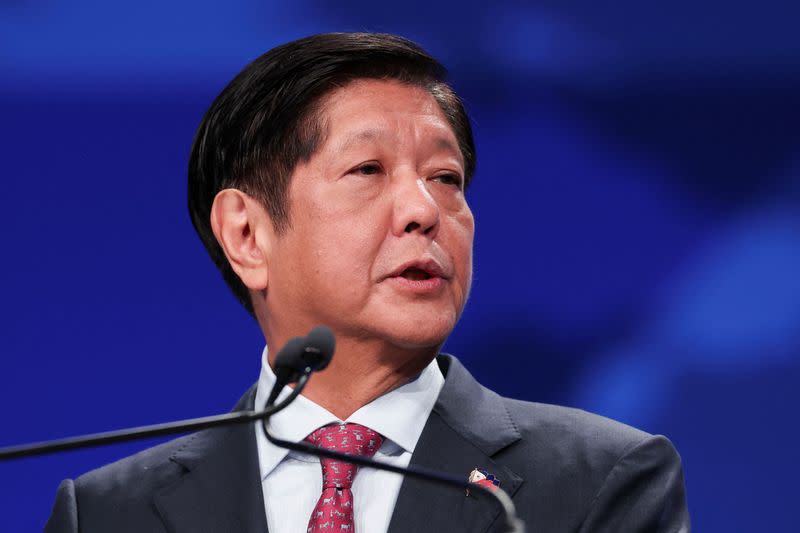Philippines launches joint sea, air patrols with US military

By Mikhail Flores and Karen Lema
MANILA (Reuters) -The militaries of the Philippines and the United States launched joint patrols on Tuesday in waters near Taiwan, officials of the Southeast Asian nation said, a move likely to fan further tension with China.
Security engagements between the treaty allies have soared this year, including a decision to almost double the number of Philippine bases the American military can access, some facing Taiwan, and their largest-ever joint military drill in April.
This week's three-day joint air and maritime exercise was a "significant initiative" to boost interoperability between the two, Philippine President Ferdinand Marcos Jr. said.
"I am confident this ... will contribute to a more secure and stable environment for our people," he said on social media platform X.
The drill would start off in Mavulis island, the Philippines' northernmost point, located about 100 km (62 miles) off Taiwan, said Eugene Cabusao, spokesperson for the Northern Luzon command.
It will end in the West Philippine Sea, the name Manila uses for waters in the South China Sea that fall within its exclusive economic zone (EEZ).
The Philippine military said three navy vessels, two FA-50 light combat aircraft and an A-29B Super Tucano light attack plane would participate, while the United States would send a littoral combat ship and a P8-A Poseidon maritime patrol and reconnaissance aircraft.
The news comes a day after Marcos told a forum in Hawaii the situation in the South China Sea had become more "dire", with the Chinese military inching closer to the Philippine coastline.
The patrols, which are likely to irk China, are a sign the Philippines is stepping up its defence posture amid what it described as China's "aggressive activities" in the highly strategic waters, long seen as a potential flashpoint between the United States and China.
"China believes that defense and security cooperation between countries needs to be conducive to regional peace and stability. They should not escalate tensions or undermine trust between countries, still less target any third party," China's Washington embassy spokesperson Liu Pengyu said.
China's embassy in Manila did not immediately respond to a request for comment.
China claims most of the South China Sea on the basis of a "nine-dash line" that stretches as far as 1,500 km (900 miles) south of its mainland, cutting into the EEZs of rival claimants Brunei, Indonesia, Malaysia, the Philippines and Vietnam.
Marcos has forged closer ties with Washington since assuming office last year after a testy relationship with former President Rodrigo Duterte, who had pivoted closer to Beijing in exchange for infrastructure projects and investments.
Ties with China have soured under Marcos, with repeated standoffs between Chinese and Filipino vessels in waters claimed by both countries, prompting heated exchanges of rhetoric and concerns of an escalation.
Marcos recently met Chinese President Xi Jinping in a bid to reduce the tension.
The joint patrol with the United States showed that Manila was making a stand over the South China Sea, said Jay Batongbacal, director of the Institute for Maritime Affairs and Law of the Sea in Manila, the capital.
"It shows that the Philippines is really firming up its posture on West Philippine Sea issues," Batongbacal said.
(Reporting by Mikhail Flores, Karen Lema and Michael Martina; Editing by Martin Pettyd, Clarence Fernandez and Jonathan Oatis)


